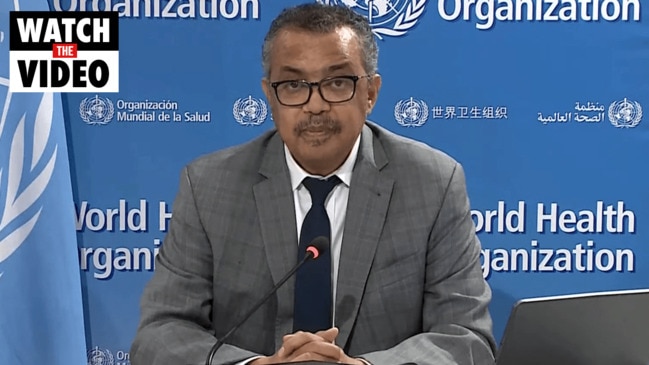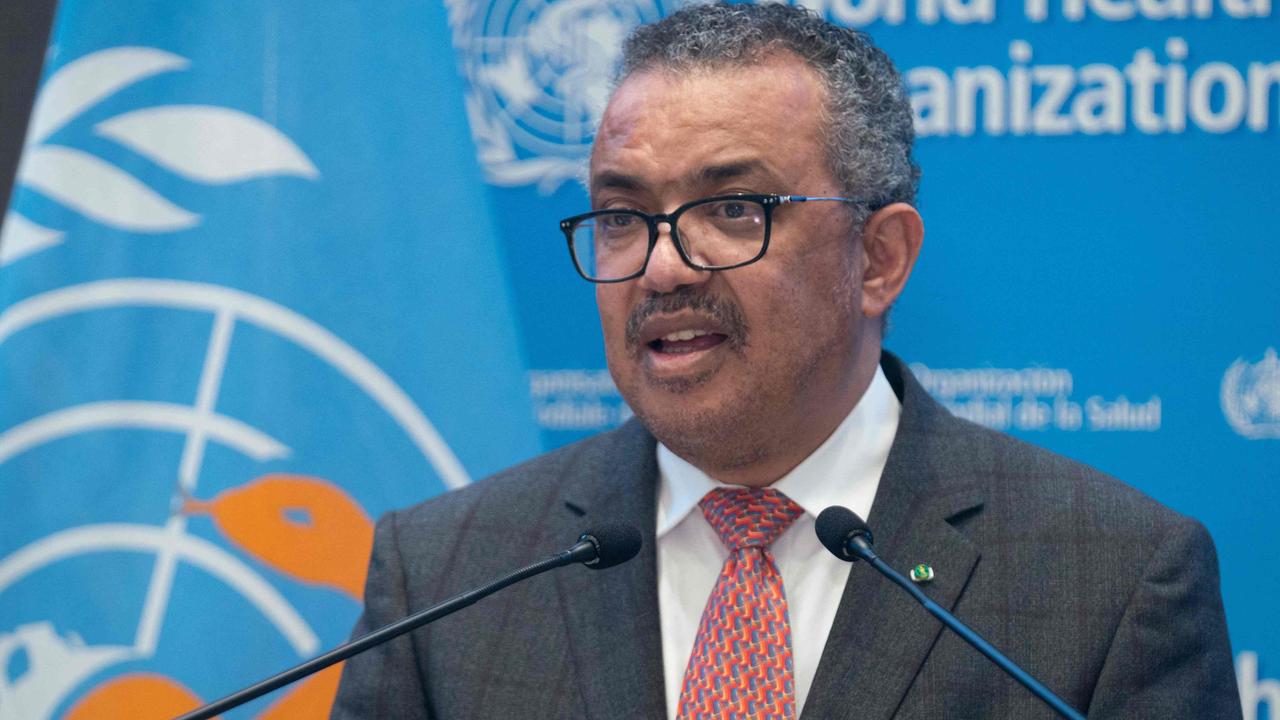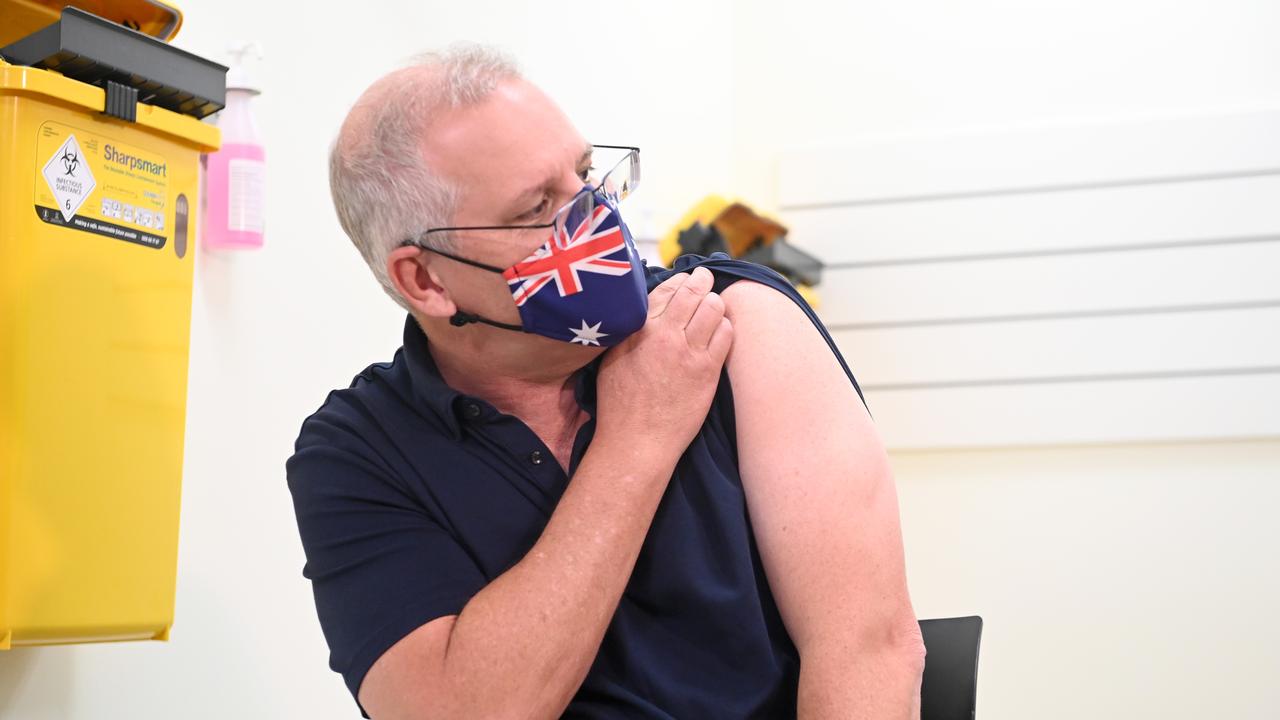‘At our peril’: WHO delivers grim warning on Omicron spread
The World Health Organisation has warned the Omicron variant is spreading around the world at an unprecedented rate – and not enough is being done to stop it.

In a sombre new message, the World Health Organisation (WHO) has warned the heavily mutated Omicron variant is now spreading around the world at an unprecedented rate – and not enough is being done to stop it.
Cases of the strain have now been confirmed in 77 countries – including Australia – but WHO director general Tedros Adhanom Ghebreyesus said in a press conference on Wednesday it’s likely to be present but undetected in “most” other places.
“Omicron is spreading at a rate we have not seen with any previous variant,” Dr Tedros said.
He added he was concerned not enough was being done to tackle the variant – which initial research suggests may be more transmissible than Delta, but has a lower severity.
“Surely we have learned by now that we underestimate this virus at our peril,” he said.
“Even if Omicron does cause less severe disease, the sheer number of cases could once again overwhelm unprepared health systems.”

WHO expert Bruce Aylward also warned against “jumping to a conclusion that this is a mild disease”.
“If we go into a season like we’re going into now, when a lot of people want to get together for the holiday season, and we have a more transmissible virus [that we don’t actually know is milder] we could be setting ourselves up for a very dangerous situation,” he said.
The level of risk remains very high, according to the WHO’s latest data, suggesting Omicron – first detected in South Africa last month – can better evade existing vaccines and carries a greater risk of reinfection.
Dr Tedros said booster shots could play an important role in curbing the virus spread, but that it was a “question of prioritisation”, reiterating his concerns about vaccine inequity.
In poorer countries, some people are yet to receive their first dose.
While the “WHO is not against boosters”, Dr Tedros said that booster programs “will repeat the Covid-19 vaccine hoarding” seen earlier this year.
“The order matters. Giving boosters to groups at low risk of severe disease or death simply endangers the lives of those at high risk who are still waiting for their primary doses because of supply constraints,” Dr Tedros said.
As well as the continued rollout of vaccines, he called on countries to employ all possible measures to rein in the variant’s spread – including encouraging physical distancing and mask-wearing.
“Do it all. Do it consistently. Do it well,” he said.

‘Pick up the pace to protect the community’
The warning comes as, in Australia, authorities and health officials warn the Omicron variant will likely become the dominant strain.
On Wednesday, virologists from the Kirby Institute presented new data after growing the strain in a laboratory and testing how it responded to various samples, including from the fully vaccinated, those who had recovered from the virus but were unvaccinated, and those who had recovered from the virus and were also fully vaccinated.
Group leader in infection epidemiology Deborah Cromer said the data had shown while the vaccines offered limited protection against symptomatic Omicron infection, “there is still some protection against severe disease and hospitalisation that is afforded from those vaccines”.
A third booster with an mRNA vaccine “massively increases neutralising antibodies and then results in protection [at] really quite high levels of up to about 85 per cent of protection against symptomatic disease, and about 98 per cent protection against severe disease”, Dr Cromer told The Guardian.
Also speaking to the publication, Australian Medical Association (AMA) president Omar Khorshid warned the booster program was being rolled out too slowly.
“By the end of this month close to four million people will be eligible for the booster, however, in the last week Australia has only been able to administer just over 210,000 booster doses,” Dr Khorshid said.
“The latest strain of Covid-19, Omicron, poses a significant potential risk to the population and appears much more transmissible than previous strains, so we have to pick up the pace to protect the community.






